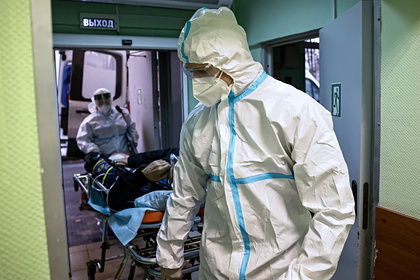The World Bank has linked the main risks of the Russian economy to the pandemic and inflation 
Russia's economic growth is threatened by the risks associated with the coronavirus pandemic and inflation. This is stated in a new report by the World Bank. The document was received by Lenta.ru. The low level of vaccination of the population can lead to new covid restrictions and thereby reduce the economic activity of Russians, and the likely increase in the rate by the Central Bank will slow down GDP growth, according to the organization.
In the fall of 2021, Russia was swept by a new wave of COVID-19, which has already slowed economic growth after the summer take-off, mainly in regions with low vaccination rates. Another outbreak required new restrictive measures, for example, the introduction of non-working days in October-November. The risks are increased by the spread of the new omicron strain, which has already indirectly affected the Russian economy.
According to the World Bank's forecast, the rate of vaccination in Russia will not change in 2022 and a significant part of the population will remain unvaccinated for most of the year. Therefore, COVID-19 will continue to pose a great threat to the health of Russians, and the authorities may impose constant and periodic restrictive measures. The organization calls disease control by the state a factor that directly limits the economic activity of residents.
In addition, the World Bank believes that the current monetary policy of the Central Bank is effective and is likely to help reduce inflation. However, this indicator in 2021 exceeded the forecasts of many analysts, and may turn out to be more stable than the Central Bank expects. Then a new tightening of monetary policy will be required, which will lower domestic demand in Russia and slow economic growth.
Uncertainty about future energy demand also threatens the country's prospects, the organization believes. The demand for hydrocarbons depends on several unpredictable factors at once – the sustainability of the global economic recovery, the speed and scale of the global energy transition, as well as Russia's actions to introduce green energy.
In October, the Danish Saxo Bank announced that Russia was in dangerously close to stagflation – a situation when an economic downturn is combined with inflation. According to analysts of the credit institution, an increase in budget spending aimed at supporting the poorest part of the population and investments in infrastructure may improve the trends.